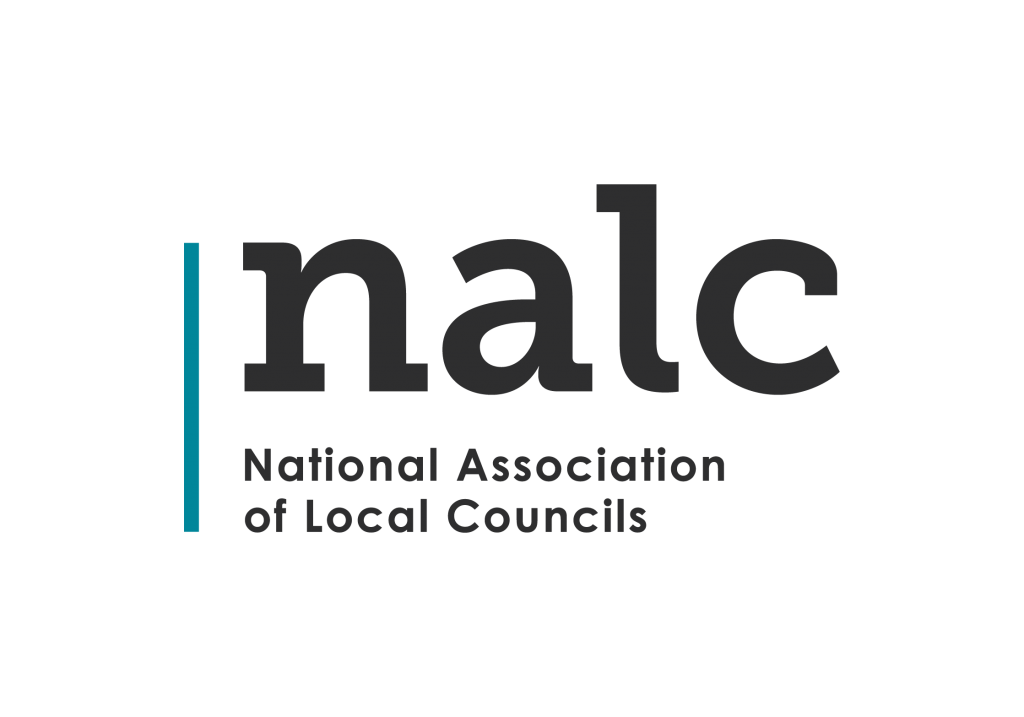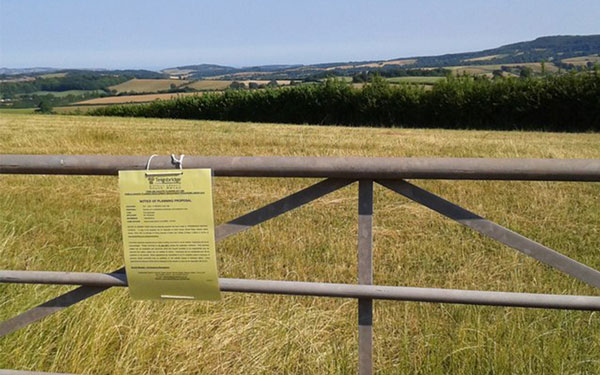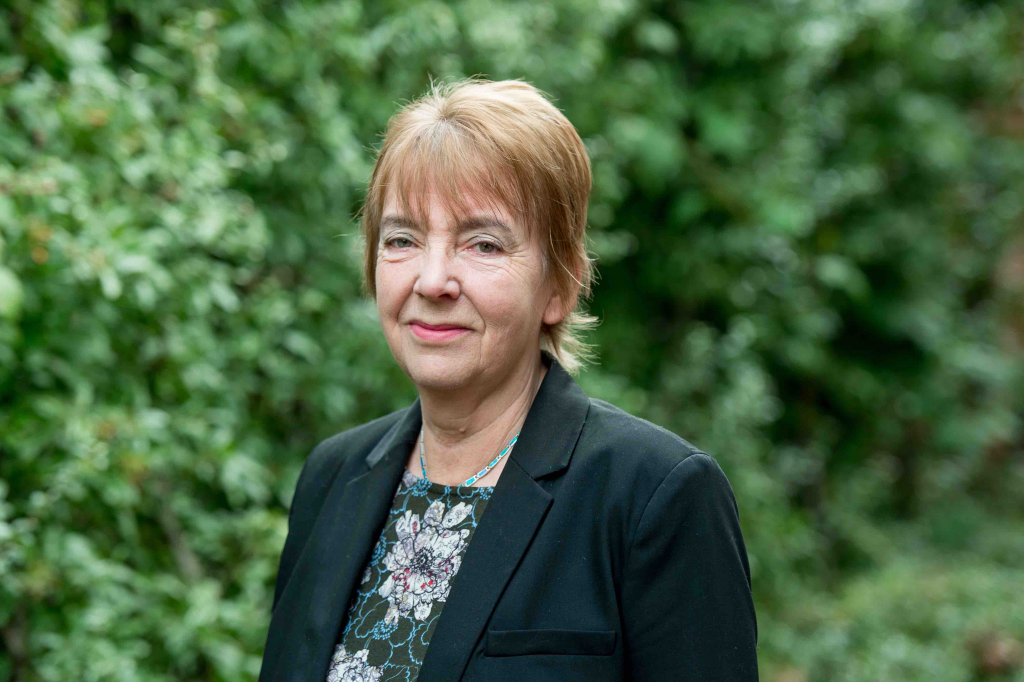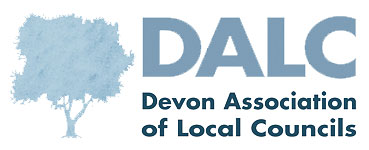Take part in a new national data collection on the 2023 elections
NALC have teamed up with De Montfort University’s Local Governance Research Centre (LGRC) to conduct a new national data collection about the local council elections held on 4 May 2023.

This research will allow them to learn how to support the running of local elections and how to ensure that local councils are able to hold elections locally without having to rely as much on co-option.
To support this, they are asking a representative of each local council to complete a short survey to tell them about their experiences of the election. They are seeking one response per council, on behalf of the council, from either the clerk or the mayor/chair of the council.
This survey seeks to understand:
- How local councils were supported to run the election
- Which support helps most
- How councils encourage potential candidates to stand for election
- How successful different approaches are
- The processes used to co-opt additional councillors when the council has insufficient elected councillors.
The survey takes less than 15 minutes to complete. While they fully understand that there are many demands on your time, it is crucial to get the views of local councils like yours.
The deadline for completion is 17:00 on Friday 6 October 2023.
To access the survey, please click the following link: https://de-montfort.onlinesurveys.ac.uk/nalc-lgrc-election-survey-2023 .
Smaller Councils – letter from NALC

NALC’s Smaller Councils Committee Chair has written to all smaller councils to ask what issues they would like the committee to address, and what services they would like NALC to provide.
Smaller councils are defined as those with an electorate of under 6000, and NALC’s Smaller Councils Committee exists to represent their needs. All members of the committee come from small local councils. The committee enables those councils to be given, via county associations, the tools and information to carry out their functions effectively with minimal cost and complexity. It also allows them to develop, formulate and respond to policy issues affecting smaller councils, including the ability to make recommendations directly to NALC’s Policy Committee.
At a meeting on 2 March, the committee agreed that its chair, Cllr Graham Ford, would write to all councils with an electorate under 6000 to ask what issues of relevance they would like the committee to address, and what services they would like NALC to provide.
The letter is available for download below, and directly invites relevant councils to share the issues that they are facing. Lately, the committee has been considering subjects including improving good governance, increasing take-up of the Local Council Award Scheme and CiLCA, practice regarding planning consultations and practical issues arising from smaller councils having limited capacity. You could comment on what help from NALC you would find useful, or whether there are particular issues that you feel NALC could be lobbying the government about that they aren’t currently (NALC’s current policy register is available here)
Relevant councils could consider this request as an agenda item at their next local council meeting; please reply to policycomms@nalc.gov.uk by 30 April 2022.
Nominations open for elections to NALC committees and leadership posts 2022/23
NALC has opened up the nomination process for elections to NALC committees and leadership posts for 2022/23

The NALC committees elections are in two parts:
- Elections for National Assembly members onto NALC committees
- Direct elections for councillors and clerks onto the Larger Councils Committee or the Smaller Councils Committee
National Assembly Elections
The primary objective of the National Assembly is to oversee the delivery of NALC’s objectives as set out in the constitution, to represent the interests of the local councils in England to provide support and coordination to aspects of the work of local councils.
NALC is looking for passionate, committed, enthusiastic local councillors with the right skills to serve on its National Assembly, and governing committees, and to support county associations’ work.
The elections will be held in December 2021 and nominations are open now. More information on what positions are open and how to apply can be found here.
Larger Councils Committee
A larger council is defined as an electorate of over 6000 and/or an annual budgeted income of £600,000. NALC’s Larger Councils Committee serves the interests of larger councils by developing, formulating and responding to policy issues affecting larger councils by providing a range of national services including legal or direct access councils and having oversight of the NALC larger council offer. The committee consists of:
- Four elected members of the National Assembly
- Four elected clerks
- Two Super Councils’ Network members
- Eight directly elected councillors
This election is for the four elected clerks, two Super Councils’ Network members and eight directly elected councillors. See here for the nomination process.
Smaller Councils Committee
A smaller council is one that does not fall into the definition of a larger council (see above). Working within the wider governance structure of NALC, the committee will promote and represent the interests of smaller councils and parish meetings. The committee consists of:
- Five elected members of the National Assembly
- Three directly elected members representing smaller councils as nominated by county associations and drawn from clerks and members of smaller councils and county staff dealing with smaller councils.
The election is for three directly elected members only. See here for the nomination process.
Joint statement agreed by Civility and Respect Project Working Group
The Civility and Respect Project Working Group have issued a joint statement summarising the core aims and values for securing permanent change in the local council sector.

The joint statement has been issued by the Civility and Respect Project Working Group. The group includes representatives from the National Association of Local Councils, county associations, One Voice Wales and the Society of Local Council Clerks. The group aims to tackle the issues of standards and behaviour in the sector with all groups working together to secure these aims.
The joint statement reads:
“Civility and respect should be at the heart of public life and good governance is fundamental to ensuring an effective and well-functioning democracy at all levels.
The intimidation, abuse, bullying and harassment of councillors, professional officers and staff, in person or online, is totally unacceptable; whether that is by councillors, professional officers, staff or members of the public.
This can prevent councils from functioning effectively, councillors from representing local people, discourage people from getting involved including standing for election, and undermine public confidence and trust in local democracy.
The National Association of Local Councils (NALC), county associations and One Voice Wales (OVW), as the membership organisations representing the first tier of local government in England and Wales, and the Society of Local Council Clerks (SLCC) as the professional body for clerks, are committed to working together to promote civility and respect in public life, good governance, positive debate and supporting the well-being of councillors, professional officers and staff.
To that end the group will be working to deliver tangible resources, actions and interventions in four main areas: providing councils with the tools to support good governance; lobbying to strengthen the standards regime and encourage more people to get involved; training; and processes to intervene to provide support to struggling councils.”
The group have also finalised plans for the appointment of a fixed-term project officer, funded by NALC and the SLCC, to drive forward the projects’ key priorities and objectives. The meeting has also discussed a local resolution protocol, linking to the Improvement and Development Board and more lobbying work.
Previously, NALC has urged the government to respond to the review of Local Government Ethical Standards which was prepared by the Committee on Standards in Public Life and published in January 2019. The government confirmed in March that it intends to publish its response alongside a consultation on the recommendations.
The SLCC has more information here on their website
Star Council Awards 2021

NALC is once again running its awards programme this year!
This is part of their work to recognise the local (parish and town) council sector’s achievements.
The Star Council Awards are the only awards in England to celebrate the local council sector’s brilliant contribution to its communities. Therefore, the awards are an excellent opportunity for councils, councillors, clerks and county associations to showcase how they have made a real difference locally.
This year, the theme of the awards will focus on projects that have positively impacted communities in the context of Covid-19. We know lots of our councils in Devon have done amazing things to support their communities in the last year; this is your time to shine!
More details, and how to nominate yourselves, can be found here. Categories include Clerk of the Year, Councillor of the Year, Council of the Year and Young Councillor of the Year.
The deadline for submissions is the 25th May 2021.
The ‘Right to Contest’

Has your council ever used the ‘Right to Contest’ for unused land to be brought back to use in your community? If yes, NALC is interesting in hearing you.
MHCLG are looking to refresh the Right to Contest process looking at its effectiveness and usefulness and have engaged with NALC to work with local councils. Essentially the Right to Contest is a right that any member of the public or body has to ‘contest’ any land owned by a public body that is unused or underused which could be brought back into use. The Right to Contest was previously known as the Community Right to Reclaim Land.
The Right to Contest has two strands: strand 1 covers central government bodies on a voluntary, non-statutory basis, and is administered by the Cabinet Office. Strand 2 covers bodies (local authorities and other certain public bodies) set out in Schedule 16 of the 1980 Act, and is administered by MHCLG.
Where a request is made under Strand 2 of the Right to Contest about a particular piece of land, MHCLG will communicate with the relevant landowner to identify its status. The decision on whether to direct that the land be released will be made on the basis of whether the land or property is in use or whether it is likely to be used in a suitable period of time.
MHCLG would be grateful if member councils could please complete this very short snapshot survey which will help inform how MHCLG progresses its refresh of Strand 2 of the Right to Contest. It will take a few short minutes to complete. Even if you nothing about this right – please complete the survey.
The deadline for completion of the survey is 17:00 on Friday 9 October.
Complete NALC's snapshot survey
NALC Chairman’s Open Letter to All Councillors

NALC’s Chairman Sue Baxter has written an open letter to all councillors expressing her thanks for all your hard work and dedication over the last few challenging months.
Our sector stepped up and acted swiftly to support residents and the most vulnerable in our communities by setting up volunteer networks, establishing emergency response groups, opening food banks or offering funding to local bodies. You can read more about your incredible work in our Coronavirus case studies publication, which has been shared widely with the government and stakeholders.
Just as impressive has been the alacrity with which many local (parish and town) councils have embraced remote working and online meetings to uphold democracy and continue vital work.
This crisis has demonstrated how important our sector is in building stronger communities, and we will continue to make the case to the government and others that we should be at the heart of building back communities as we move into the recovery phase.
If there are any positives to come from this, it is the greater sense of community spirit and civic action. Our task now is to harness this to support the work of our councils and encourage more people to stand at future elections.
I want to pay particular tribute to clerks and council staff, who have diligently kept the show on the road. They are working under immense pressure — having to not only cope with the anxieties we all share but additionally the difficult task of balancing home working with other responsibilities. It is crucial as councillors and local leaders that we recognise their challenge and support their efforts.
As the country moves forward, it is imperative as councillors we work closely with clerks and council staff. Maintaining our collective focus to ensure our local councils are well run and safe and that we continue to support our communities and play a pivotal role in leading our places and making the most of the opportunities that lie ahead.
The National Association of Local Councils (NALC) will continue to keep you updated through the pandemic with our dedicated coronavirus webpage. The page has over 100,000 hits, and I’m delighted our resources have been so useful. We are pleased to make the latest edition of LCR magazine free online — it features a range of topical information to help you.
NALC and county associations are working on your behalf to ensure the government is aware of the financial constraints we face and their consequences. We are pressing them for a dedicated package of support, which includes funding. I would ask all councils and councillors to contact their MPs to seek their backing and ask them to lobby the government.
Thank you for everything you are doing to support your communities.
Cllr Sue Baxter, NALC Chairman
Links
Find out more about the work of the National Association of Local Councils
Coronavirus | NALC and SLCC issue joint letter to councils

NALC and the SLCC have issued to a joint statement to councils commending them for their work in supporting their communities as they respond to the COVID-19 pandemic. Read the letter:
“As the coronavirus pandemic continues and the UK enters this new phase of government measures, we wanted to reach out to the local (parish and town) council sector. These are unprecedented and challenging times, and our first thoughts are for the health and welfare of yourselves and your communities.
We are hearing stories from up and down the country of local councils stepping up and supporting their local communities and most vulnerable. Such as Woodbridge Town Council in Suffolk, which has set-up an emergency response group of councillors and volunteers to assist with collection/delivery of medicines, shopping, walking the dog or simply being a voice at the end of the phone, and Hagley Parish Council in Worcestershire, which is acting as an information hub and plans to publicise restaurants are offering a delivery service and contact details for NHS helplines. The National Association of Local Councils (NALC) has collated further case studies and is keen to find out more from a wide range of local councils — tell us more at www.nalc.gov.uk/coronavirus.
Following the prime minister’s announcement, we wanted to reiterate the importance of following the new rules on staying at home and away from others. This guidance impacts on all of us and there are the additional need to self-isolate or shield from contact depending on your situation. It essential that we all follow these rules to slow the pandemic and to support our NHS. Both NALC and the Society of Local Council Clerks (SLCC) are asking local councils to stop holding any physical meetings or gatherings during this time. This includes full council, committee meetings, annual parish or council meetings. These are extraordinary times, and they call for extraordinary measures. The health and safety of your staff, councillors and local communities should be your first concern.
The government is working on a Coronavirus Bill and associated legislation that will allow your council meetings to be held remotely and to make decisions without the need for physically meeting. This will be introduced soon, and so we encourage you to be patient. We are making representations to ministers, parliamentarians, civil servants and the Local Government Association to ensure our sector’s concerns are considered and addressed and will be providing updates to our respective members as soon as further information is forthcoming.
NALC and SLCC are in regular contact to share knowledge, understand the sector’s concerns and provide mutual support for our members.”
An Open Letter from NALC’s Chairman

Cllr Sue Baxter has written an open letter to all councils discussing the role they have to play in building stronger communities.
Building stronger communities was the theme of October’s NALC Annual Conference where Her Royal Highness, The Princess Royal, paid tribute to England’s 100,000 councillors for all the work they do for their places. And I want to add my own thanks and appreciation, and wish you all the very best for the new decade ahead.
Right across the country, our local (parish and town) councils have been building stronger communities for the last 125 years. Delivering many things that help make places good to live in, work, and visit. From community events to play areas, allotments to defibrillators, firework displays to markets, public toilets to giving grants – and much more.
Increasingly though, as our existing 10,000 local councils continue to grow in size, resource and ambition, they will be at the centre of community power as service deliverers, culture creators, place shapers and leaders.
In fact, as the most local level of democracy and community action, their role has never been more important, with increasing ambitions to tackle national issues: building community resilience, tackling loneliness, promoting community safety, and creating healthier communities. And recently many hundreds of local councils have declared climate emergencies, and are playing their part in addressingthis most pressing of global challenges.
Over the next few years NALC is planning to focus on the three themes of health and wellbeing, the climate emergency, and engaging young people, and to highlight the current and future potential of the local council sector in helping other agencies and our communities.
Now we have a new government in place, I will be personally prioritising making contact with key ministers across government to ensure the role of our local councils and their future development, including on the themes outlined above, is firmly on their agenda.
Whatever our own political views, on your behalf NALC will work with the government (and parliament) to ensure that they make your job of building stronger communities easier, not more difficult, that your ambitions for your places are supported, not thwarted.
We will continue to press government on measures contained in our A prospectus for ultra-localismthat help communities to help themselves, so local people can build strong, thriving and resilient communities.
Firstly, empower people and communities. Level up the whole country and establish new local councils in unparished areas including cities such as London, so no community is left behind in having democratic local leadership that is accountable, open and transparent. And allow communities to take back control of their area and have more of a say over planning, housing and development by strengthening neighbourhood planning and ensuring neighbourhood plans have greater weight and protection.
Secondly, help build capacity and support local leadership. Free up communities to respond to the changing needs of their area by making it easier to access the general power of competence, supported by a new national democracy fund to encourage more people to become councillors and support for training and development. And by strengthening the standards regime to improve conduct and behaviour and increase public trust and confidence, and tackling intimidation of elected representatives.
Thirdly, provide flexible and diverse funding. Empower local leaders at all levels to plan for the future and invest in their areas by scrapping council tax referendums. And by reforming business rates, including re-introducing legislation to exempt public conveniences which are an important and valued community facility and asset which provides both a public health and economic benefit.
I believe that with this national support we can be at the centre of a movement of community change, and never has it been more important for local councils to play their full part in this, including realizing our potential to help bring the country and communities back together after the last few challenging years.
In order to do this, I would like to issue two challenges for the decade ahead.
Firstly, to the sector: be up for this challenge, be ambitious for your communities and take your place as the first tier of government. Working with colleagues in the 43 county associations across England, NALC will encourage and support councils of all sizes to do just that. We must work collectively together to fulfil the sector’s potential to transform communities, encouraging more people from all backgrounds to get involved. Crucially, we must continue to ensure we are well run and open and transparent to residents.
Secondly, to the government and other agencies (including principal authorities and the health sector),work with us to use what we can offer. Engage with us and listen to us – we are a movement of 10,000 well-run organisations and over 100,000 councillors plus thousands more volunteers, all working to improve their communities. My clarion call to you is to help NALC bring the benefit of local councils to all communities in England.
In the decade ahead, working together, I want to see more local councils set up across the country, ambitiously fulfilling their potential to boost community power. Using their local democratic mandate to influence the work of other institutions and build strong, thriving and resilient communities.
Local councils are of the community, and for the community. They absolutely have a key role to play in the 2020s. Now, more so than ever before, their time has come.
Cllr Sue Baxter,
Chairman of the National Association of Local Councils
Links
Find out more about the work of the National Association of Local Councils
